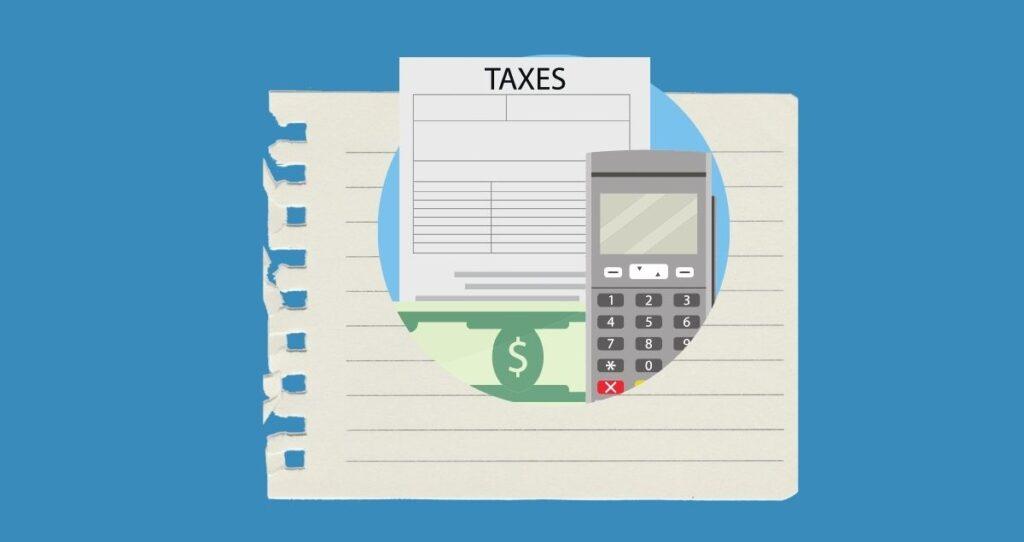Are you tired of living paycheck to paycheck or struggling to make ends meet? Or maybe you are just looking for ways to improve your financial health, invest more money, and eventually retire from your 9-to-5 job. Whatever your situation, there are effective strategies to manage your money better and improve your financial situation.
You have come to the right place if you are serious about managing your money and turning your situation around. In this article, I will walk you through the 11 best tips to manage your money better. Even if you are new to money management, the personal finance and money management tips you will learn in this article will help you lay a strong financial foundation and build your net worth one step at a time.
Without further ado, let’s get started.
1. Establish financial goals
One of the most critical aspects of managing your money better is planning and living a life with a purpose. This means establishing clear financial goals for yourself and your family.
While it may seem overwhelming, setting achievable and realistic goals is essential to achieving financial freedom. Whether you want to save for a down payment on a house, pay off your credit card debt, or build an emergency fund, having a clear goal will keep you motivated and on the right track.
Additionally, financial goals are crucial to managing your money better, as overspending temptations can get in the way. Most people spend extravagantly and don’t save money because of a lack of financial goals. You cannot save money and live below your means without financial goals.
Take the time to write down your goals, create a timeline, and assess your progress regularly. With financial goals, you’ll be better equipped to make smart financial decisions and achieve your desired lifestyle.
Related: 9 steps to build a financial plan that works
2. Create a budget and stick to It
With financial goals in place, the next step to managing your money better is creating and sticking to a budget. A budget allows you to understand how much you are making and where the money is being spent. You can also use a budget to evaluate your finances and reduce expenses when necessary.
Start by tracking your expenses for a few weeks or months to understand where your money is going. Then, create a realistic budget, ensuring that all incomes and expenses include rent, groceries, bills, and transportation. Small expenses, such as vending machine purchases, should also be included in your budget.
Once you have a budget in place, it is crucial to stick to it. This means avoiding impulsive spending or ignoring your budget to make a purchase that does not align with your financial goals.
You may also like 20 clever ways to reduce expenses and increase savings
3. Pay off debt
One of the biggest obstacles to achieving financial independence is debt. Whether it’s credit card debt, student loans, car loans, or a mortgage, owing money can create a lot of stress and hold you back from achieving your financial goals. That’s why it’s important to prioritize paying off debt to manage your money effectively.
Of course, this is easier said than done. Paying debt requires discipline, sacrifice, and a willingness to make tough choices. You might need to give up your streaming services and/or work overtime to pay off debt. But the benefits are worth it. Not only will you save money on interest charges, but you’ll also free up funds for other financial goals, such as saving for retirement or investing in your future.
Related post: Tips to pay off debt using the debt avalanche method.
So, how do you effectively pay off your debts?
First, take a close look at your debt. List all your debts, including the interest rates and minimum required payments. This will help you determine the debt management strategies to use and which debt to pay off first. Many experts recommend starting with the highest interest rate debt, saving you the most money in the long run.
You might also need to consolidate some of your credit card debts. Other debt settlement strategies, such as payment plan adjustments or terms negotiation, can also help you pay off your debts. You should also consider the debt refinancing option to make your monthly payments affordable.
Next, look for ways to reduce expenses and free up more money for debt payments. This might mean cutting back on discretionary spending, such as eating out or buying new clothes. It might also mean finding ways to earn more money, such as taking on a side hustle or freelance work.
Are you interested in refinancing your loans? Use the following guides.
- How to refinance a mortgage?
- How to refinance your car loan?
- How to refinance your student loan: Easy guide
4. Establish a good credit
Establishing a good credit score is one of the most essential steps to managing your money better and ensuring long-term financial success. A good credit score can open doors to better interest rates on loans, credit cards, and mortgages, saving you thousands of dollars over time. By default, you cannot manage your money best without having good credit.
If you have a thin credit file and have never taken out a loan, start with a credit card and use it responsibly. This means making on-time payments and keeping your balance low. It’s also important to check your credit report regularly for errors and to dispute any inaccuracies.
Another way to establish good credit is to take out a small loan, such as a car or personal loan, and make consistent payments. This demonstrates to lenders that you are responsible and can be trusted to repay borrowed money.
Establishing good credit is just one piece of the puzzle regarding managing your money effectively. In the next section, we’ll discuss the importance of saving money and how it can help you achieve financial freedom.
You might also like tips on building credit as a college student.
5. Save first, spend later
“Do not save what is left after spending, but spend what is left after saving,” Warren Buffet.
One principle of effective money management is to save first and spend later. This means that instead of spending your income and saving whatever is left, you should prioritize saving and then spend what’s left after you’ve set aside money for your financial goals.
Saving first can help you build an emergency fund, invest in your future, and avoid bad debt. Setting aside a portion of your monthly income before you start spending will minimize the risk of overspending.
Many people think you need a college degree to manage your money better. This is not true. All you need is a clear view of your financial goals and discipline to allocate your money into investments and savings accounts that align with that vision.
To prioritize saving, create a budget that includes saving as one of your expenses. Start with a small savings rate and gradually increase it as you get comfortable. You can automate your savings by setting up a direct deposit or automatic transfer from your checking account to your savings account every month.
I need to clarify that saving first doesn’t mean you have to live a frugal lifestyle. You can still enjoy the things you love after you’ve taken care of your financial responsibilities.
More savings tips.
- 15 ways to save money when Living Paycheck to Paycheck
- 11 clever ways to save money when purchasing a home
- 5 reasons why you can’t save money every month
6. Track Your Spending
Tracking your spending is essential to take charge of your finances and manage your money best. Tracking your spending allows you to identify areas where you overspend and adjust accordingly. It can also help you see how much you spend on necessities versus non-essentials, allowing you to make informed decisions about where to cut back if needed.
One easy way to track your spending is using a budgeting app or websites like Mint, YNAB, and Goodbudget. Many of these tools will link directly to your bank accounts and credit cards, making it simple to see exactly where your money is going. You can categorize your expenses, set budgets for each category, and get alerts when you’re close to reaching your limits.
If you prefer a more hands-on approach, you can track your spending manually using a spreadsheet or notebook. Start by writing down every purchase you make and the amount and category (such as groceries, entertainment, or transportation). At the end of each month, tally up your spending in each category to see where you stand.
Remember, tracking your spending isn’t about restricting yourself or feeling guilty for every purchase you make. It’s about being informed and in control of your finances. By understanding where your money is going, you can make better decisions about allocating it or cutting back on your spending to boost your savings.
You might also like the eight budgeting mistakes to avoid at all costs.
7. Invest in your future
A good money management strategy comes with an investment plan. Investing in your future means looking beyond your current financial situation and considering long-term goals, such as retirement, education, or buying a house.
Investing can seem overwhelming, but it doesn’t have to be. Start by educating yourself on the different types of investments available, such as stocks, bonds, mutual funds, and real estate. Consider consulting with a financial advisor or utilizing investment apps to help guide you in the right direction.
The good thing about investing is that you don’t need hundreds of thousands of dollars to get started. You can start small, such as contributing to a 401(k) through your employer or opening up a Roth IRA. The important thing is to start somewhere and make it a habit. Starting sooner allows you to boost your portfolio through compounding interest.
You might also like: 8 ways to avoid capital gains tax on investment
8. Save for emergencies
To manage your money best, you need an emergency fund. No matter how great your financial plan is and the money management strategies you use, an emergency account is crucial to your success. Without an emergency fund, all your plans can be derailed by unexpected expenses.
Unexpected expenses can range from a broken-down car to a costly medical bill or job loss. Without savings set aside, these expenses can throw your entire budget off track and leave you struggling to make ends meet. Setting aside an emergency fund to cover at least three to six months of living expenses is essential.
The best way to build an emergency fund is to automate your savings by setting up a separate account and automatically transferring a set amount from your monthly paycheck. While building up your emergency fund may take some time, the peace of mind it brings is invaluable.
Read more:
9. Maximize your income
Maximizing your income is one of the best ways to manage your money and improve your financial health. While cutting back on expenses is essential, increasing your income can help you achieve your financial goals faster.
One way to increase your income is to negotiate your salary with your employer. Research the salary range for your position and experience level, and explain why you deserve to be paid at the higher end.
Another option is to pick up a side hustle or freelance gig in your spare time. Many people find success in the gig economy, whether driving for a ride-sharing service, selling handmade items on Etsy, or doing freelance work in their area of expertise. You can do the same thing.
Follow this list of 49 ways to make money fast if you want extra cash.
You could also consider investing in yourself and your education. This could mean taking courses, pursuing a degree that will help you increase your earning potential in your current field, or exploring a new career path that could lead to higher-paying opportunities.
You might also like 12 tips to get a raise at work and be promoted fast
10. Automate your savings
One of the best strategies to manage your money better is to automate your savings. Automating your savings means setting up a system that automatically transfers money from your checking account to a savings or investment account regularly. You can also have your paycheck automatically deposited into different savings accounts, such as retirement, savings, or checking accounts. This makes saving a priority and removes the temptation to spend that money elsewhere.
Setting up automatic transfers is easy, and you can usually do it through your bank or investment company’s website or mobile app. Start by deciding how much you want to save each month and choose a date of the money for the transfer to occur.
Once you’ve set up automatic transfers, you’ll see your savings account grow without thinking about it. This is an effective way to build up an emergency fund or save for a long-term goal, like a down payment on a house.
11. Take advantage of free money
One way to boost your financial health is to use free money effectively. Yes, you read that right – free money! Many employers offer matching contributions to retirement accounts like 401(k) plans. If your employer offers this benefit, ensure you contribute enough to take advantage of the full match. This is essentially free money that can compound over time and significantly increase your retirement savings.
Another way to get free money is through cashback rewards programs on credit cards or shopping websites. By signing up for these programs and making purchases as you normally would, you can earn cashback or points, which you can later redeem for gift cards or other rewards.
You might also like 10 practical ways to boost retirement savings
What is the 50-30-20 rule for managing your money?
The 50-30-20 budget rule is a popular budgeting method that can help you manage your money effectively. This rule suggests breaking down your income into three categories: 50% for necessities like rent, groceries, and bills, 30% for discretionary spending like entertainment and shopping, and 20% for savings and debt repayment.
By following this rule, you can ensure that you stay within your means while still having room for fun and saving for the future. It also helps you prioritize your spending and avoid overspending in areas that aren’t as important.
Of course, everyone’s financial situation is different, so this rule may not work for everyone. However, it is a good starting point if you want to create a budget and manage your money better.
Read more: The 50-30-20 budget rule and how to apply it
What are the five principles of money management?
To manage your money better and build financial resilience, it’s not enough to create a budget and stick to it or just have financial goals. You must understand and use money management principles to guide your financial independence journey. By incorporating these principles into your financial habits, you can make the most of your money and achieve your financial goals.
The following are financial management principles that you should live by.
- Live below your means. This means spending less than you earn, creating a budget to track your expenses, and avoiding debt whenever possible. It may seem obvious, but living below your means is crucial to building a strong financial foundation and managing your money better.
- Save for emergencies. Life is unpredictable, and unexpected expenses can quickly ruin your life. Aim to save 3 to 6 months’ living expenses in an emergency fund to protect against emergencies.
- Prioritize your goals. Whether buying a house, starting a business, or paying off debt, setting goals and planning for achieving them is essential.
- Invest for the long term. While there are no guarantees in the stock market, history has shown that stocks typically provide higher returns over the long term than other investments. You can also diversify your investments into real estate, bonds, ETFs, etc.
- Continually educate yourself about personal finance. Personal finance constantly changes, and you must stay current on the latest trends and strategies to avoid unexpected financial surprises.
What is the golden rule of money management?
The golden rule of money management is simple: always spend less than you earn. It may sound simple, but this fundamental concept is the core of financial wellness. It’s essential to track your expenses, create a budget, and make wise spending choices to ensure you’re not spending more than your income.
This is because spending more than you earn automatically leads to unnecessary borrowing, debt accumulation, and bankruptcy. By following this rule, you can avoid debt and build a strong foundation for your financial future.
Best money management apps
Managing your money better sometimes requires the use of different apps and websites. These apps help you manage your finances, track your expenses, and monitor your investments in one convenient location. With powerful features like budget tracking, investment tools, and mobile access, these apps are game changers for anyone looking to manage their money effectively.
The following is a list of the best money management apps to help you take control of your finances.
- Mint. This app lets you track your spending, set budgets, and monitor your investment portfolio.
- Empower. This app offers advanced investment tracking and retirement planning tools.
- Honey app. The Honey app is excellent for those who want to save money on everyday expenses. The app helps you find the best deals and discounts on everything from groceries to travel.
- EveryDollar. This app is excellent for zero-based budgeting. The app allows you to track your expenses and personal wealth. You can also create a personal budget and set financial goals.
- Goodbudget. This app is great for personal finance, creating budgets, tracking expenses, and managing your money better.
- You Need A Budget(YNAB). This money management app is great for hard-core budgeters. YNAB is based on the envelope method, which allows you to design your budget, track your expenses, manage your money, and set financial goals.
What skills do you need to manage your money better?
While many helpful tools are available to manage money, the best skills come from within. Developing a strong foundation of financial literacy and responsible spending habits is essential to achieving long-term economic success. Some key skills to focus on include budgeting, goal setting, and educating yourself on various investment and financial products. Learn as much as possible because knowledge is power.
What is the 5x spending rule?
The 5x spending rule is a simple yet powerful guideline to help you make informed spending decisions. Essentially, the rule states that before making a purchase, you should have enough cash to purchase the items 5 times. The cash does not include a credit balance such as a credit card. If you don’t have enough cash to purchase the item 5 times, do not make the purchase. It simply means that you cannot afford the item.
For example, if you are buying a $5,000 car, you should have at least $25,000 in cash value.
This principle also applies when picking investments. Before purchasing an asset, the asset should be worth five times its price in terms of the long-term value it provides. For example, if you’re considering buying a new car for $30,000, you should ask yourself if it will provide at least $150,000 worth of value throughout its lifetime.
These simple rules protect you from impulse purchases or buying things you don’t need that add no value to your finances.
How do you manage money in your 20s?
When you’re in your 20s, managing your money can be a daunting challenge. You may be just starting your career and facing a range of new financial responsibilities, such as student loan payments, rent, and bills. However, it’s also a time when you have the opportunity to lay a strong foundation for your financial future.
One crucial step is to create a budget to maximize your savings. This will help you prioritize your financial future and avoid overspending. It’s also a good idea to start setting financial goals, such as saving for a down payment on a house and contributing to your retirement savings accounts, including IRAs and 401(k) plans.
You also need to learn how to manage debt effectively in your 20s. This means understanding the terms and conditions of any loans or credit cards you have and making sure you make payments on time. You may also consider consolidating high-interest debt to save money on interest charges.
Additionally, it’s important to remember that investing in yourself is one of your best decisions. This means investing in education, skills development, and building your network. Doing so can increase your earning potential and set you up for long-term financial success.
Money management tips for adults
As we grow older, our financial responsibilities tend to increase as well. From paying bills to investing in assets, managing money as an adult can be overwhelming. However, navigating your financial responsibilities can be manageable and rewarding with the right mindset and money habits.
One important money management tip for adults is to prioritize saving for retirement. It’s never too early to start thinking about your retirement goals. Consider setting up retirement accounts, such as an IRA or 401(k) plan, and contributing to them regularly.
Another money management tip for adults is tracking your expenses. As your income and expenses change over time, keeping track of where your money is going is crucial. This will help you identify areas where you can cut back and save more effectively.
In addition to monitoring your expenses, it’s essential to maintain a healthy credit score. Your credit score impacts your ability to secure loans for major purchases, such as a car or a home. Monitor your credit report and make timely payments to maintain a good credit score.
Finally, don’t be afraid to seek professional financial advice. Whether you’re looking to invest your savings or set up a budget, a financial advisor can provide guidance and support to help you achieve your goals.
The bottom line
Managing your money is an essential skill that everyone should develop. By establishing financial goals, creating a budget, and paying off debt, you can take control of your finances and achieve financial freedom. Other strategies you can implement to manage your money better are saving first, tracking your spending, and investing in your future. You should also automate your savings and ensure you are protected from emergencies by building an emergency fund.








